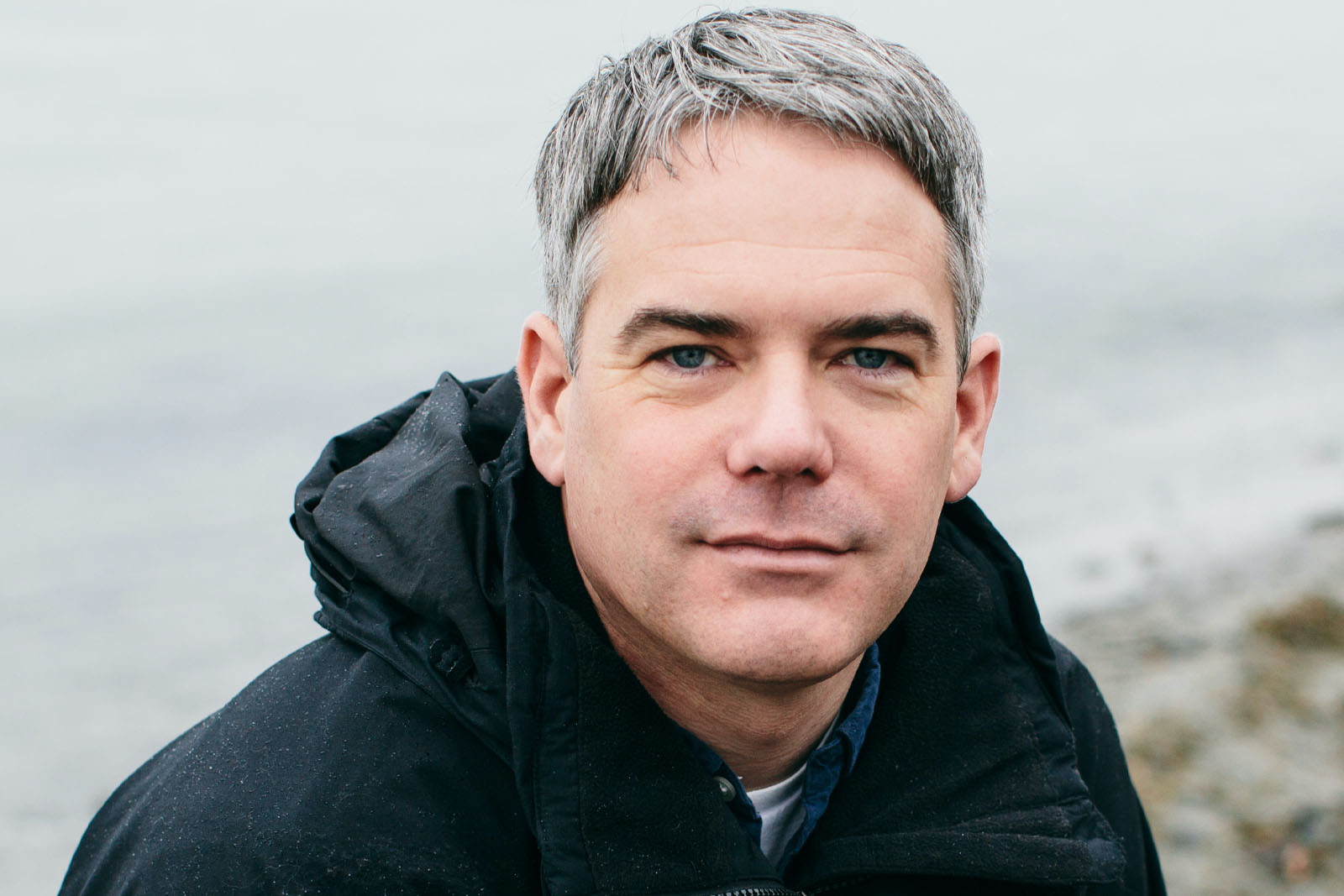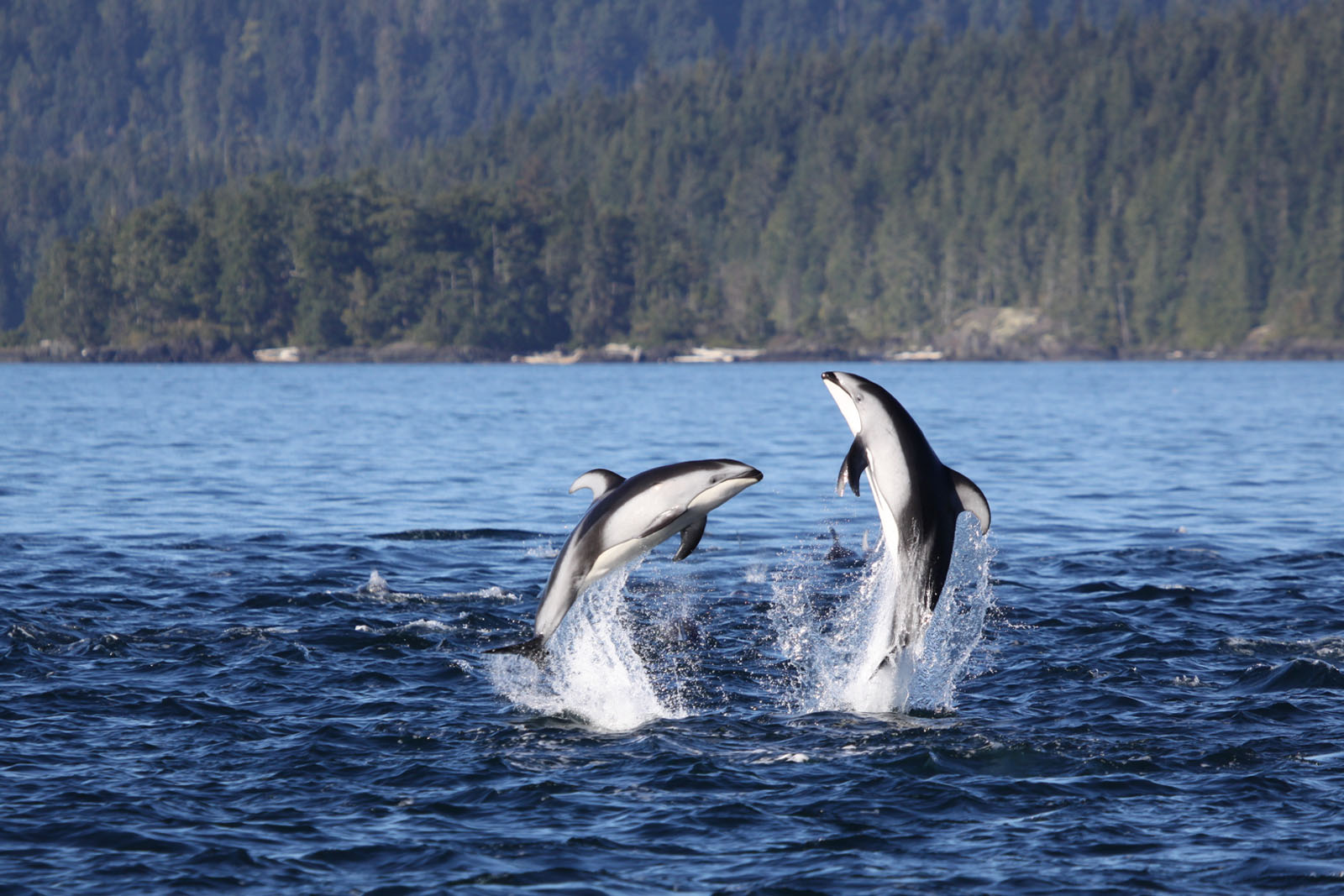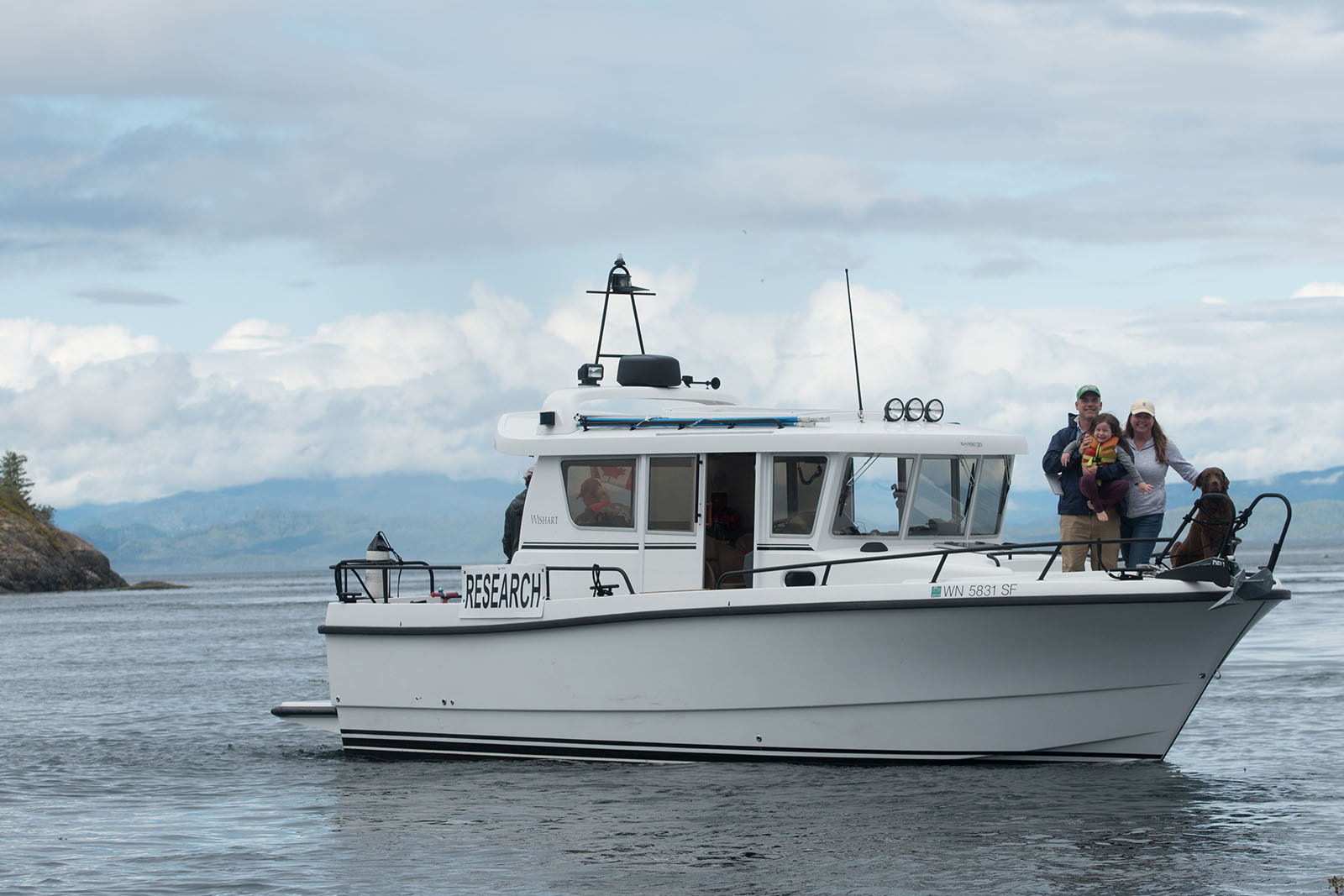In the path of whales
Renowned marine biologist and co-founder of Oceans Initiative Rob Williams’ journey was anything but a straightforward swim.
A first-generation student, Williams sought the classic American campus experience he’d seen in movies — small, ivy-covered, and bustling with lively debates. He was inspired to come to Mount Allison by his older sister, Terri (Williams) Vicari (‘93). Little did he know that this decision would immerse him in a bubble of camaraderie, where students lived blocks away from each other, passionate about different fields.

“I loved studying biology with my classmates, but Mount A offered a unique opportunity to get to know future artists and economists, business majors and historians, and people who read widely and deeply for the sheer joy of it,” says Williams.
Mount Allison’s emphasis on small class sizes and liberal arts education diverted him from his pre-med path and lead him to discover his true passion for science and research.
Influential professors like Ron Aiken and Irena Kaczmarska played a crucial role in shaping Williams’ perspective, but one teacher stands out in his memory.
"Gay Hansen had a gift for showing us how biodiversity fit together to tell a global story,” he says. “You couldn’t help but want to protect biodiversity after hearing her tell you how these organisms evolved. I don’t know if I would be a biologist without her.”
After Mount A, Williams was accepted into a master's program at UBC. His professor chose him out of 100 applicants in part because he was the only one who didn’t ask what the study animal was.
"It turns out the project was on killer whales, and I was hooked immediately,” he says. “Unlike most whale and dolphin populations, we count every individual killer whale in the population each year from birth to death using each whale’s natural markings.”
This intensive effort was in response to the urgent need to address the unsustainable live-capture fishery targeting killer whales for display in aquaria. In contrast, there was a notable lack of knowledge about the populations of humpback whales, fin whales, harbour porpoises, Dall’s porpoises, and Pacific white-sided dolphins off the British Columbia coast.

The end of commercial whaling in Canada and the 1986 global moratorium on commercial whaling left a significant void in Canadian scientific expertise for the kind of surveys and statistics used to estimate the size and status of whale populations.
Recognizing this gap, Williams approached professors at the University of St Andrews in Scotland, which is renowned for its global excellence in marine mammal biology and statistics. He focused his PhD on case studies to do conservation-minded research on whales and dolphins using low-cost methods. Leveraging expedition-style cruises to the Antarctic and partnering with local scientists in the Amazon, Williams repurposed existing platforms to collect data and applied advanced statistics to detect conservation problems.
After completing his PhD, Williams returned to BC to continue his work on killer whales. He built himself a remote cabin on an off-the-grid island to sustain his budget-conscious studies and established himself as a leading voice in marine conservation, advocating for evidence-based decision-making in the face of emerging threats such as offshore oil and gas exploration.
Inspired by a global need for good conservation science, Williams and his wife, Dr. Erin Ashe, co-founded Oceans Initiative, a research nonprofit in Canada and the USA in 2007. Its mission is to fill research gaps and provide crucial information for effective conservation decisions.

Being ahead of the curve has its own set of challenges. Williams says it is difficult to raise funds to work on species and issues that not yet well known. Canada’s extraordinary biodiversity and a vast coastline also complicate efforts to protect wildlife. However, Oceans Initiative’s dedication to protecting ocean wildlife and habitats has yielded impactful results that are used in conservation and management decisions every day.
Williams’ work has also been noticed by his peers, who awarded him a Fulbright, a Marie Curie fellowship, and a Pew Fellowship in Marine Conservation — an award given annually by Pew Charitable Trusts to five of the world’s most innovative conservationists.
As someone deeply engaged in marine mammal research, Rob cherishes moments of awe from around the globe, from counting Antarctic minke whales from a helicopter over the Southern Ocean sea ice to witnessing killer whales in Patagonia and pink river dolphins in the Amazon.
Beyond Oceans Initiative, Williams balances various roles, including as a volunteer. He attributes his happiness to following the advice of a friend — to build his life in the path of the whales.
That advice, combined with working side-by-side with his wife, the love of his daughter, and the joy of having two Chesapeake Bay retrievers on the boat, keeps him on the right course.


